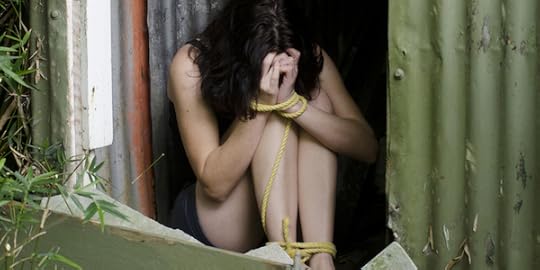The caveat of ‘being saved’
“I will pray for Jesus’ intervention in rescuing those poor girls.”
That was a response to an article highlighting the prevalence of sex trafficking at major city events like the Superbowl someone posted on Facebook. It’s a sentiment that acknowledges the horror of forced prostitution, which I agree with. It offers hope, which I would love to hold on to.
But ultimately, it’s rare for men, women, and children to be rescued from trafficking. So while I believe that “Jesus Saves,” statements like these really make me wonder what, exactly, we mean when we say that.
More to the point: if one rare person is saved from this horrible fate, finds a supportive community, and goes on to become a pillar of society, does he or she have the right to say this new life came from God? What about the millions of others who weren’t so lucky? What about those who stay enslaved their whole lives? Does saying, “God spared me” somehow negate the importance of all the other human beings who were not spared?
This is one of those permanent unknowable territories for me. But how does anyone really know?
When I got offered a contract with Booktrope this week (!!!!), my first response was, “Thank you God!” But what was I thanking him for, exactly? This offer didn’t fall from the sky; I worked for it. I’ve been working on this manuscript for hours every day for the past month, sometimes deleting entire sections that didn’t read as well on the screen as they sounded in my head. It was a seemingly endless process of writing, revising, deleting, and re-writing. Lots of head banging and cursing at the coffee pot for not providing me with more muse.
But in the end, I’m the one who submitted it. I earned that contract. If I’m “blessed” for it, maybe what I mean to thank God for is my writing talent (though four years as an English major in college helped cultivate that, too). I am thankful for this opportunity that, one way or another, came across my path.
That’s a very shallow comparison to a child who is born in an illegal brothel and relentlessly abused, however. Confronted with that evil reality, I can feel my views of God’s direct involvement with humanity shift more toward Deism than Christianity: a belief that he created the world and everything in it, but is relatively inactive today. Christianity tells the story of a God who is directly involved, always – and that’s a worldview I would prefer to believe in, because I can’t accept a broken world without redemption. But when we think of grace, salvation, and blessings as tangible things – being pulled out of literal wreckage and brought to a safer place – I think that’s missing the point.
Christianity is all about bearing suffering: confronting it, braving through it. Not avoiding it. And that was one major element that attracted me as I endured the aftermath of a friend’s suicide, an abusive boyfriend, a sick father who never made it to my wedding, and the demons of depression and anxiety that plague me on a regular basis. When I prayed regularly (something I find extremely difficult to do these days), I prayed for healthier ways of enduring pain. Not avoiding it. Because I know this is a world where nothing is guaranteed to be fair. I know that I, one of many fallen beings, am not any more unique and worthy of being handpicked from a car accident or a tornado than any of my peers.
I’m sure if such a thing ever did happen to me, I would thank God. How could I not? But I would thank God in such a way that acknowledges the mystery of my survival, and pray that I could live in such a way that it isn’t wasted.
Filed under: Rape Culture, Religion Tagged: Author Sarahbeth Caplin, Christian culture, Christianity, Controversy, evangelicals, First World Problems, grief, Writing





